Bb9.5
We should now be better equipped to look at the 27 glyphs
following Bb9-5 (supposedly corresponding to the
last of the 6 nights added by Menkaure):
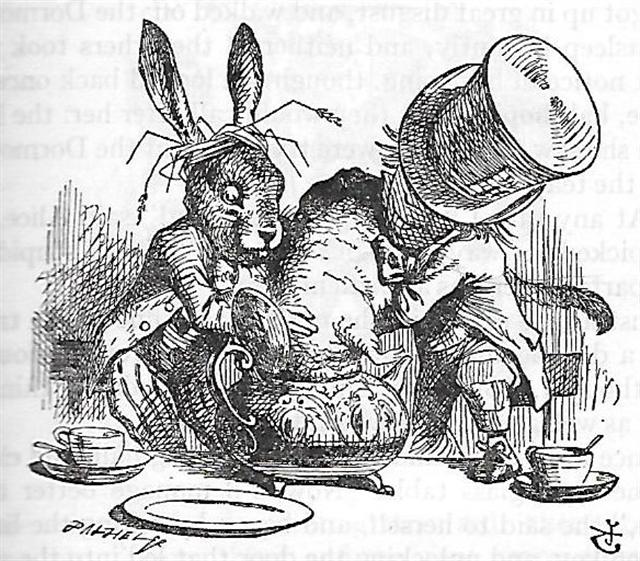
|
RIGHT ASCENSION DAYS AT
THE FULL MOON: |
 |
 |
 |
 |
 |
|
Bb9-1 (327) |
Bb9-2 |
Bb9-3 (750) |
Bb9-4 |
Bb9-5 (325 +
6) |
|
ξ Orionis
(92.5) |
Al Han'ah-4 (Brand)
/
Maru-sha-pu-u-mash-mashu-7
(Front of the Mouth of the Twins)
TEJAT PRIOR =
η
Gemini
(93.4),
γ
Monocerotis (93.5),
κ
Aurigae
(93.6),
κ
Columbae (93.8)
*52.0 = *93.4 - *41.4 |
FURUD = ζ Canis Majoris
(94.9) |
Well-22 (Tapir)
/
Arkū-sha-pu-u-mash-mashu-8
(Back of the Mouth of the Twins)
δ
Columbae (95.2),
TEJAT POSTERIOR =
μ
Gemini, MIRZAM (The Roarer) =
β
Canis Majoris (95.4),
CANOPUS
(Canopy) =
α
Carinae
(95.6),
ε
Monocerotis (95.7),
ψ1
Aurigae (95.9)
*54.0 = *95.4 - *41.4 |
No star listed (96) |
|
APRIL 18 (108) |
19
(*93 - *64 = *29) |
20 (80 + 30) |
21 (111 = 107 + 4) |
22 |
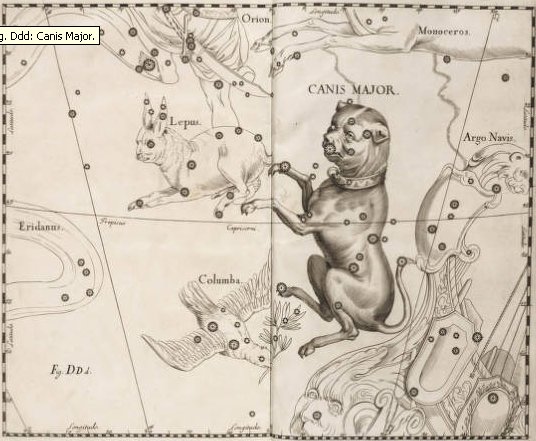 |
|
HELIACAL STARS: |
|
OCT 18 (108 + 183) |
19 |
20 |
21 |
22 (295) |
MENKAR (α Ceti) |
η Sagittarii
(*276) |
KAUS MEDIUS |
KAUS
AUSTRALIS |
KAUS BOREALIS |
|
Solstice (355) |
Dec 22 |
23 |
CHRISTMAS EVE |
25 (175 + 184) |
|
I te tagata moe |
ki to vae |
ko te moa pu - ko te moa
tegetege |
ko te moa uha pu |
e tagata ia |
|
Gete. M.: Whakangete,
to urge on a horse. Ngetengete, to make a
clicking sound with the tongue. to click with
the tongue, as to a horse; to chirrup. To
express surprise or sorrow. Cf. ketekete,
to express surprise or regret. H.: neke,
an indistinct sound, as scratching on a rough
board; to make the noise of scratching; to
scratch. Cf. ekeeke, to be in pain;
displeasure, arising from an offence; the
feeling which one has when that which he prizes
is spoken against or injured. T.: ete, to
flinch; eteete, to be shocked disgusted,
or ashamed. Cf. paete, to be made angry.
To.: cf. ketekete, to chirrup; kekete,
to chirp; to chatter. Text Centre.
Uha. Hen; female (familiar): taaku
uha = taaku vî'e, my wife, or my daughter
(i.e. taaku poki). Vanaga. Female. T
Pau.: koufa, female of animals. Mq.:
uha. id. Ta.: ufa, uha, id.
Ma.: uwha, uha, id. Uhamau
(uha - mau 7), to brood, to hatch.
Churchill. Tonga, Niuē:
uha, rain. Viti: utha, rain.
Churchill 2. |
I decided to begin with those 10 right ascension nights
ending at 7h (close to the Full Moon), where there
is a figure inside hanging upside down:
 |
 |
 |
 |
 |
|
Bb9-6 |
Bb9-7 |
Bb9-8 |
Bb9-9 (2 *
378) |
Bb9-10 (330 +
6) |
|
RIGHT ASCENSION DAYS AT
THE FULL MOON: |
|
β Monocerotis, ν Gemini (97.0) |
No star listed (98) |
Aurigae (99.4), ψ2 Aurigae (99.5)
GEMMA (α
Cor. Bor.) |
ψ4 Aurigae (100.5),
MEBSUTA (Outstretched) = ε Gemini
(100.7) |
SIRIUS = α Canis Majoris
(101.2),
ψ5
Aurigae (101.4),
ν Gemini (101.6), ψ6 Aurigae (101.7)
*60.0 = *101.4 - *41.4 |
|
... In other words, the ancient Druidic religion
based on the oak-cult will be swept away by
Christianity and the door - the god Llyr - will
languish forgotten in the Castle of Arianrhod,
the Corona Borealis. This helps us to
understand the relationship at Rome of Janus and
the White Goddess Cardea who is ... the Goddess
of Hinges who came to Rome from Alba Longa. She
was the hinge on which the year swung - the
ancient Latin, not the Etruscan year - and her
importance as such is recorded in the Latin
adjective cardinalis - as we say in
English 'of cardinal importance - which was also
applied to the four main winds; for winds were
considered as under the sole direction of the
Great Goddess until Classical times ... |
|
OCT 23 |
24 |
25 |
26 |
27 (300) |
|
ku oho mai ki to rima |
e manu rere - ki to huki |
E Rei vage rua |
ko te tagata kua oho -
kua
tagi mai ki te vai |
ko te Rei |
|
Tagi. To cry, to weep, to
moan; tatagi, to cry much; to cry loudly:
he-tagi te karaga; tagata rava, tagi karaga,
bawling, vociferous person. Vanaga. To cry,
to bark, to mew, to bawl, to whine, to ring, to
wail, to prattle, to weep, lamentation,
condolence, to regret, to affect, to wish, to
will, to choose, earnestness; tae tagi,
inhuman, insensible, to refuse, to renounce;
tagi kiukiu, ring of a bell; tagi
rakerake, to wish one ill; tagi kore,
indifferent; manava tagi, to affect;
hakatagi, to cause to weep, to make resound,
to ring; tagitagi, to covet; tatagi,
cry mourning, grief, lamentation, to groan, to
weep, to be affected, to grow tender; tatagi
tahaga, inconsolable; tatagihaga,
friendship. Churchill. |
 |
 |
 |
 |
 |
|
Bb9-11 |
Bb9-12 (293
+ 45) |
Bb9-13 (760) |
Bb9-14 (340) |
Bb9-15 (→
135) |
|
RIGHT ASCENSION DAYS AT
THE FULL MOON: |
|
τ
Puppis (102.2),
ψ7
Aurigae (102.4)
*61.0 = *102.4 - *41.4 |
Mash-mashu-sha-Risū-9
(Twins of the Shepherd)
θ
Gemini (103.0),
ψ8
Aurigae
(103.2),
ALHENA =
γ
Gemini
(103.8),
ψ9
Aurigae (103.9) |
ADARA (Virgins) = ε Canis Majoris
(104.8) |
ω
Gemini (105.4), ALZIRR (Button) =
ξ
Gemini
(105.7),
MULIPHEIN (Oaths) =
γ
Canis Majoris
(105.8),
MEKBUDA (Contracted) =
ζ
Gemini
(105.9)
*64.0 = *105.4 - *41.4 |
7h
(106.5)
No star listed (106) |
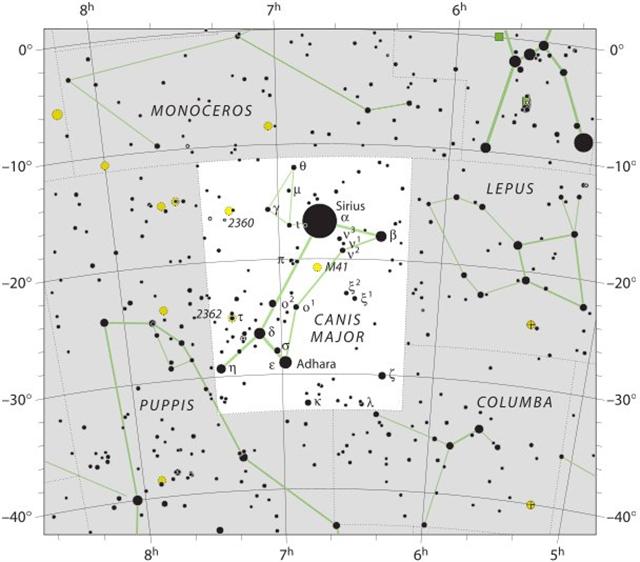 |
|
OCT 28 |
29 |
30 |
31 |
NOV 1 |
|
kua huki |
ku hoti
i te vai |
mai ai i te Rei |
ma te hokohuki |
mai tagi ai i te vai |
|
SOGDIAN: |
|
Wabir |
Well
Mouth |
α
Andromedae (Sirrah),
γ
Pegasi (Algenib) |
1.8 |
Mar
23 (82) |
|
Riwand |
Rich |
ζ
(Revati)
Piscium |
16.9 |
April
6 (96) |
|
Bashish |
Protector |
β
(Sheratan),
γ (Mesarthim) Arietis |
27.4 |
April
17 (107) |
|
Barv |
Forerunners |
μ,
33, 35, 39,
41
(Bharani)
Arietis |
41.4 |
May 2
(121) |
|
Baharu |
Follower |
α
(Aldebaran)
Tauri |
68.2 |
May
28 (148) |
|
Marezānā |
Twins |
λ
(Heka),
φ¹,
φ² Orionis |
83.2 |
June
12 (163) |
|
Ghataf |
Canal |
γ
(Alhena),
η (Tejat Prior), μ (Tejat Posterior), ν,
ξ (Alzirr) Gemini |
103.8 |
July
2 (183) |
|
The distance from Sirius (α
Canis Majoris) to the Virgins (ε) seems to have been
'underlined' by the creator of the B text:
|
 |
*5.6 |
 |
*3.6 |
 |
 |
|
CANOPUS
(*95.6) |
SIRIUS
(*101.2) |
ADARA
(*104.8) |
MULIPHEIN (*105.8) |
|
St John's
Day (175) |
June 30
(175 + 6) |
July 3 |
4
(185) |
Presumably this had to do
with the ceremonies held every 4th year, cfr the
Mesopotamian measure for the
Head of Ku: (→ Kuukuu south of the
equator):
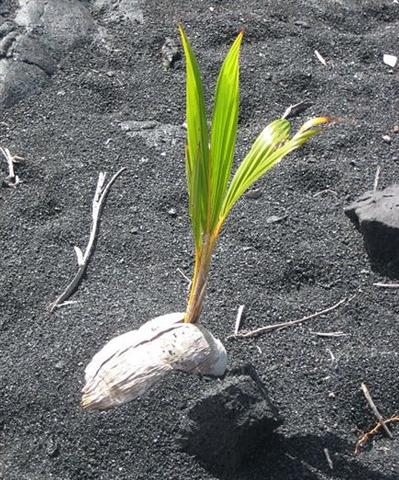
... The traditional Egyptian calendar
had 365 days: twelve months of thirty days each and an
additional five epagomenal days. According to the
reform, the 5-day 'Opening of the Year'
ceremonies would include an additional 6th day every
fourth year. The reason given was that the rise of
Sothis advances to another day in every 4 years, so
that attaching the beginning of the year to the heliacal
rising of the star Sirius would keep the calendar
synchronized with the seasons ...
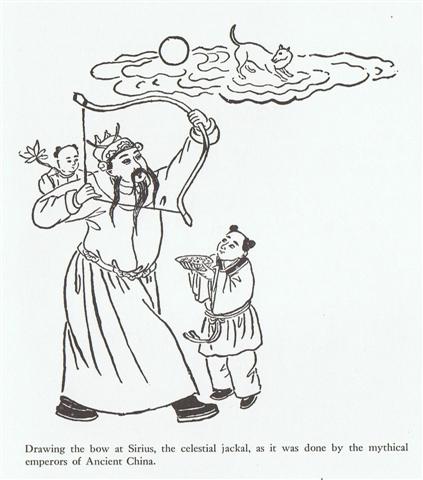
... According to an etiological
Hawaiian myth, the breadfruit originated from the
sacrifice of the war god Kū. After deciding to
live secretly among mortals as a farmer, Ku
married and had children. He and his family lived
happily until a famine seized their island. When he
could no longer bear to watch his children suffer, Ku
told his wife that he could deliver them from
starvation, but to do so he would have to leave them.
Reluctantly, she agreed, and at her word, Ku
descended into the ground right where he had stood until
only the top of his head was visible. His family waited
around the spot he had last been day and night, watering
it with their tears until suddenly a small green shoot
appeared where Ku had stood. Quickly, the shoot
grew into a tall and leafy tree that was laden with
heavy breadfruits that Ku's family and neighbors
gratefully ate, joyfully saved from starvation
...
For some reason ψ8 Aurigae has not been indicated in the
star map for Auriga:
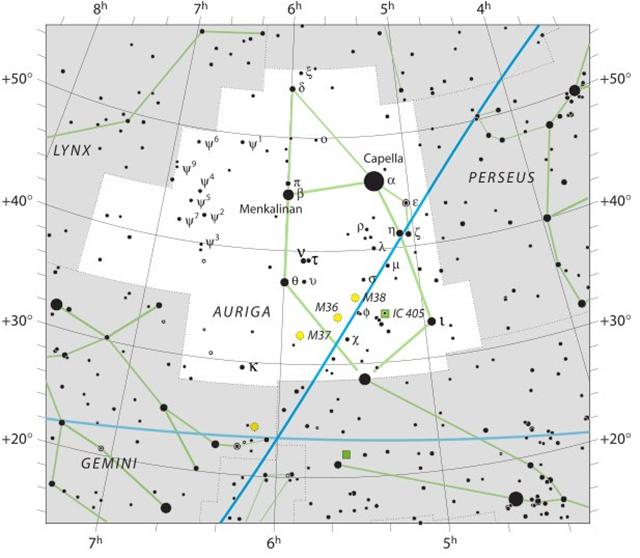
|
Egyptian
flail |
 |
Phoenician lamed |
 |
Greek
psi |
Ψ (ψ) |
|
Wikipedia: In writing, the
early letter appears in an angular shape ( ).
There were early graphical variants that
omitted the stem, 'chickenfoot-shaped psi',
as: ).
There were early graphical variants that
omitted the stem, 'chickenfoot-shaped psi',
as:
 or
or

In later research it was
postulated that the [Phoenician] alphabet is
actually two complete lists, the first
dealing with land agriculture and activity,
and the second dealing with water, sea and
fishing.
The first half
beginning with Alef - an ox, and
ending with Lamed - a whip. The
second list begins with Mem - water,
and continues with Nun - fish,
Samek - fish bones, Ayin - a
water spring, Peh - the mouth of a
well, Tsadi - to fish, Kof,
Resh and Shin are the hook hole,
hook head and hook teeth, known to exist
from prehistoric times, and the Tav
is the mark used to count the fish caught.
The Crook and
Flail were instruments of the Pharaoh:
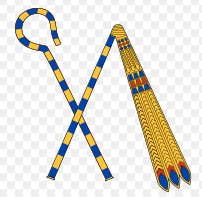 |
A quick look in
my star list reveals the reason probably was that it
was too faint (6.46) - i.e. not quite visible.
... Originally the highly born family of the Sun, Moon,
and stars dwelt in a cave on the summit of Maunga-nui,
Great Mountain, in the ancient homeland. They were not
at all comfortable in their gloomy home for they could
not see distinctly and their eyes watered constantly
...
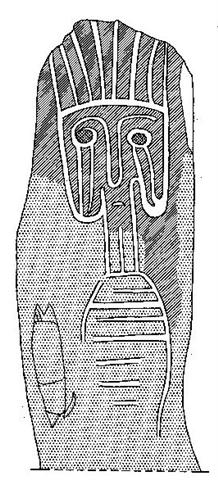
The star named Water-eyed would come 8 right
ascension nights after Alhena and 16 days after Canopus:
|
 |
*5.6 |
 |
*3.6 |
 |
 |
*5.3 |
 |
|
CANOPUS
(*95.6) |
SIRIUS
(*101.2) |
Virgins
(*104.8) |
MULIPHEIN (*105.8) |
Virgin
(*111.1) |
|
St John's
Day (175) |
June 30
(175 + 6) |
July 3 |
4
(185) |
10
(191) |
 |
 |
 |
 |
 |
|
Bb9-16
(763) |
Bb9-17 |
Bb9-18 |
Bb9-19
(345) |
Bb9-20
(339 + 7) |
|
WEZEN (Weight) =
δ
Canis Majoris
(107.1),
τ
Gemini (107.7),
δ
Monocerotis (107.9) |
No star listed (108) |
λ Gemini (109.4), WASAT (Middle) = δ Gemini (109.8)
*68.0 = *109.4 - *41.4 |
No star listed (110) |
ALUDRA (Virgin) =
η
Canis Majoris
(111.1),
PROPUS = ι Gemini (111.4),
GOMEISA (Water-eyed) = β Canis Minoris
(111.6)
*70.0 = *111.4 - *41.4 |
|
ka viri te vai |
mai i haga ia -
koia - hakahumu i te vai - kia ki tata |
|
Humu. 1. Tattooing on
the feet. (Cf. Ta.: umu, ornament.)
2. (umu). 3. Mq.: To attach, to tie.
Ha.: humu, to fasten together by
sewing. Churchill.
Tata.
1. To wash something. 2. To go;
he-tata-mai, to come, to appear, to show
up. Vanaga.
Tátá - see
tá.
Vanaga. 1. Agony, severe pain, apparent
death. 2. Next, proximity;
hakatata,
to bring close together. 3. To strike;
tata ei
taura, to flog, to lash. 4. To
wash, to clean, to soap, to rinse. 5. To
appear, to approach, to advance, to present;
hakatata,
to advance, to propose, to accost.
Churchill. |
 |
 |
 |
 |
 |
|
Ga2-13 |
Ga2-14 |
Ga2-15 (45) |
Ga2-16 |
Ga2-17 |
... The jaguar learned from the
grasshopper that the toad and the rabbit had stolen
its fire while it was out hunting, and that they had
taken it across the river. While the jaguar was
weeping at this, an anteater came along, and the
jaguar suggested that they should have an excretory
competition. The anteater, however, appropriated the
excrement containing raw meat and made the jaguar
believe that its own excretions consisted entirely
of ants. In order to even things out, the jaguar
invited the anteater to a juggling contest, using
their eyes removed from the sockets: the anteater's
eyes fell back into place, but the jaguar's remained
hanging at the top of a tree, and so it became
blind. At the request of the anteater, the macuco
bird made the jaguar new eyes out of water, and
these allowed it to see in the dark. Since that time
the jaguar only goes out at night. Having lost fire,
it eats meat raw. It never attacks the macuco - in
the Apapocuva version, the inhambu bird, also one of
the Tinamidae ...
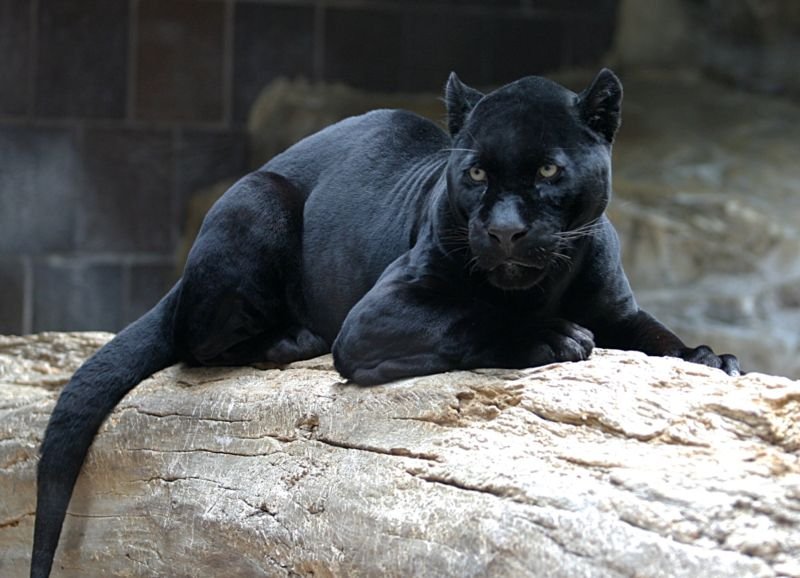
|

















